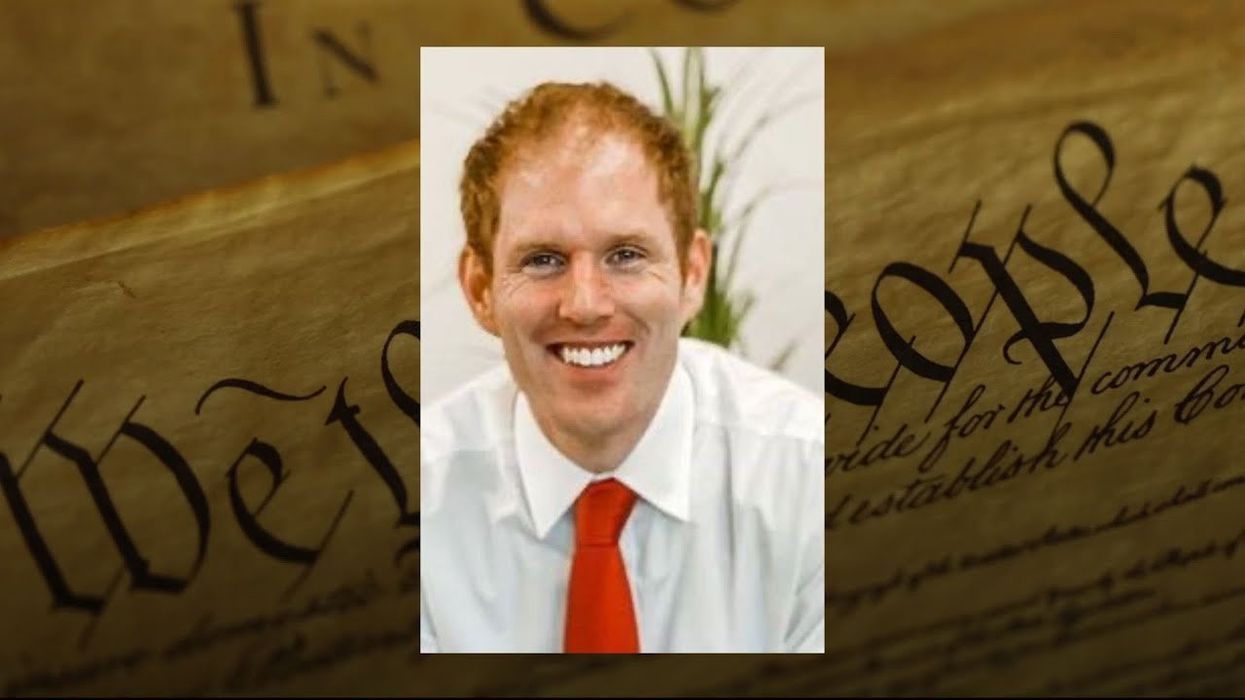The Fulcrum presents The Path Forward: Defining the Democracy Reform Movement. Scott Warren's weekly interviews engage diverse thought leaders to elevate the conversation about building a thriving and healthy democratic republic that fulfills its potential as a national social and political game-changer. This series is the start of focused collaborations and dialogue led by The Bridge Alliance and The Fulcrum teams to help the movement find a path forward.
Stephen Richer is the former Recorder of Maricopa County, Arizona, and a current Senior Practice Fellow in American Democracy at the Ash Center at Harvard University.
For the last four years, Stephen was responsible for voter registration, early voting administration, and public recordings in Maricopa County, Arizona, the fourth-largest county in the United States.
Stephen gained widespread acclaim in many corners and scorn in others for his efforts to defend the results of the 2020 presidential and 2022 midterm elections. A committed Republican, Stephen stood up to many in his party, including President Trump, who pushed fraud narratives and conducted dubious audits. Additionally, Stephen worked tirelessly to convert election denialists, promoting extreme transparency, including frequent comprehensive tours of the election facility.
Probably because of his efforts to advocate for elections, Stephen lost the Republican primary in Maricopa in 2024. However, he is staying in the game, continuing to lead efforts to reform and improve elections and serving as an active member of the pro-democracy field.
I have gotten to know Stephen as a friend and colleague and am inspired by his work to put principles above party and his own career. At the same time, he is sober about the challenges ahead for democracy, having lost his job because of his efforts.
His advice for the field is both needed, and he is also struggling for the best road forward, as we all are now. His main reflections included:
- A collective action problem has only gotten worse for Republicans: There is often a stated need from those in the pro-democracy field for Republicans to continuously and vigorously speak out against President Trump and his authoritarian tendencies. Stephen did, becoming a pseudo-celebrity for his pro-democracy activities, and lost his seat to a recorder who has espoused election denialist rhetoric.
As Stephen noted, this “is a very serious collective action. Every single person elected official on the Republican right over the last 5 years can tell you that there have been plenty of people who have said, this is not my cup of tea. I wish this would all go away. This is nonsense, but if anyone who sticks their neck out, it just gets whacked off immediately, either they get targeted online, or if they get primaried.”
This is a big problem, but there’s no easy solution. As Stephen went to observe: “The most frustrating thing to me was the number of higher profile elected Republicans, former elected Republicans who privately would sing my praises, thank me for doing the right thing but then wouldn't say darn thing publicly, or would even endorse some of the people who were my detractors."
It's easy to say that Republicans should speak out. However, the associated action is more complicated when they lose or get targeted.
- There is a need to pick battles right now: A ton of action is coming out of the federal government. Stephen urges pro-democracy actors to be judicious as they pick their battles. The distinction between opposing Trump and advocating for democracy is a challenging but important endeavor.
As Stephen notes, “The pro-democracy movement needs to figure out its messaging better, and I still think that a lot of people are carrying on as if it's just politics as usual..But at the same time, we need to separate some of that messaging from just messaging (focused on I don't like Donald Trump. So therefore, I'm going to criticize him for everything, because I do think that there's a decent amount of eye rolling from the average American. If you consistently say democracy is under attack, or we have a constitutional crisis every single day…We need to study what actually resonates with Americans. And then we need to let them know when those things are happening, and we need to remind them that those things are happening.”
- Pro-democracy should not be confused as espousing all progressive policies: Stephen is a Republican who has placed principles above party loyalty. But that should not be confused with Stephen supporting all progressive policies. There is sometimes a dangerous tendency to assume that all Republicans who speak out against dangerous tendencies in their own party are on board with all priorities on the left.
Scott Warren is a fellow at the SNF Agora Institute at Johns Hopkins University. He is co-leading a trans-partisan effort to protect the basic parameters, rules, and institutions of the American republic. He is the co-founder of Generation Citizen, a national civics education organization.




















Trump & Hegseth gave Mark Kelly a huge 2028 gift